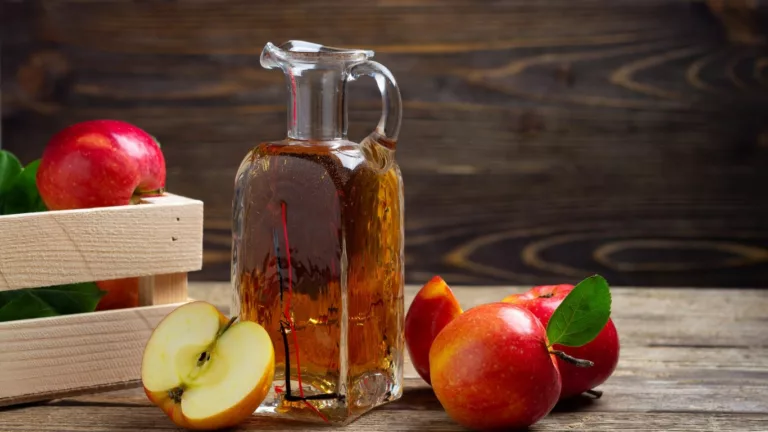Benefits of Fermented Foods for Hypertension: A Complete Guide
Interested in how fermented foods can help manage hypertension? Well, you’re in the right place! This guide breaks down the benefits of fermented foods for blood pressure control and how they can support overall health.
Hypertension (high blood pressure) is something that affects millions of people worldwide, but managing it doesn’t always have to mean relying on medications. One natural and delicious approach to help maintain healthy blood pressure is by incorporating fermented foods into your diet. Yes, these foods do more than just improve gut health! They can play a significant role in lowering blood pressure and enhancing overall wellness. 
What Are Fermented Foods?
Fermented foods are those that have been through a process where bacteria, yeasts, or molds break down food components, like sugars and starches. This process produces beneficial compounds, including probiotics—those tiny, good bacteria that are great for your gut. Some common examples of fermented foods are yogurt, kefir, kimchi, sauerkraut, and kombucha. So, why exactly are they so good for you? The benefits go beyond just better digestion!
How Fermented Foods Help Manage Hypertension
Fermented foods have been linked to numerous health benefits, especially when it comes to managing blood pressure. Here’s how they can help:
1. Boost Gut Health, Lower Blood Pressure
There’s a strong connection between the gut and the heart, often referred to as the “gut-heart axis.” Research has shown that the probiotics in fermented foods can help improve gut health, which, in turn, plays a significant role in regulating blood pressure. A healthy gut means more efficient nutrient absorption, better hormone regulation, and less inflammation—all key factors in maintaining a balanced blood pressure. 
2. Increase Production of Short-Chain Fatty Acids
When we consume fermented foods, they encourage the production of short-chain fatty acids (SCFAs) in our gut. SCFAs, like butyrate, have been shown to promote healthier blood vessels and reduce inflammation, two factors that directly impact hypertension. So, by feeding your gut with fermented foods, you’re helping your body create compounds that support healthy blood pressure.
3. Promote Healthy Nitric Oxide Levels
Nitric oxide (NO) is a compound that helps relax and dilate blood vessels, which can naturally lower blood pressure. Some studies suggest that fermented foods may help increase the body’s production of nitric oxide, making blood flow easier and lowering resistance in the arteries. This can be incredibly beneficial for people struggling with hypertension.
What Are the Best Fermented Foods for Hypertension?
Not all fermented foods are created equal, so let’s talk about which ones are best suited for supporting healthy blood pressure.
Kefir
Kefir is a fermented milk drink loaded with probiotics. It’s similar to yogurt but with a thinner consistency. The diverse strains of bacteria in kefir are particularly beneficial for gut health and can help regulate blood pressure. Plus, it’s high in potassium, which is a nutrient known to help manage hypertension.
Kimchi
Kimchi is a spicy, fermented vegetable dish, typically made from cabbage and radishes. It’s rich in probiotics and fiber, both of which can support cardiovascular health. Plus, kimchi is low in calories and contains antioxidants that may help reduce blood pressure. 
Sauerkraut
Made from fermented cabbage, sauerkraut is another excellent source of probiotics. The high fiber content in sauerkraut helps reduce cholesterol levels, and its probiotics can improve gut health and support heart function. Just be sure to choose a version that’s low in salt, as too much sodium can actually raise blood pressure.
Kombucha
Kombucha is a fermented tea known for its refreshing, slightly tangy taste. The probiotics in kombucha promote gut health, while its antioxidant properties help reduce oxidative stress, which can contribute to high blood pressure.
Miso
Miso is a Japanese seasoning made from fermented soybeans. It’s full of probiotics and can be used to enhance the flavor of soups, dressings, or marinades. It’s also rich in potassium and magnesium, which help balance blood pressure. Just keep an eye on the sodium content if you’re watching your salt intake.
How to Incorporate Fermented Foods into Your Diet
Adding fermented foods to your daily routine doesn’t have to be complicated. Here are some simple ways to include them:
1. Start Your Day with Kefir or Yogurt
Instead of regular milk or juice, try starting your morning with a cup of kefir or probiotic-rich yogurt. You can add fresh fruit or granola for extra nutrients!
2. Snack on Kimchi or Sauerkraut
These can be enjoyed as snacks or added to salads for a spicy, tangy kick. Pair them with whole grains or proteins like chicken for a balanced meal.
3. Sip on Kombucha
Kombucha is a great alternative to sugary drinks. You can drink it on its own or mix it into smoothies for added health benefits.
4. Add Miso to Soups and Sauces
Miso makes a great base for soups or can be stirred into sauces to enhance flavor. You can even use it as a marinade for meats or tofu.
The Science Behind Fermented Foods and Hypertension
Research into the connection between fermented foods and hypertension is ongoing, but early studies have shown promising results. For example, a study published in the American Journal of Clinical Nutrition found that fermented dairy products, like yogurt and kefir, helped lower systolic blood pressure in participants. Another study indicated that the probiotics in fermented foods might improve endothelial function, which is crucial for healthy blood vessels. While more research is needed, the current evidence suggests that including fermented foods in your diet could have a positive effect on hypertension management. 
Conclusion
Incorporating fermented foods into your diet can be a delicious and natural way to help manage high blood pressure. With their powerful probiotics, fiber, and heart-healthy nutrients, these foods not only support gut health but also contribute to healthier blood vessels and lower blood pressure. Whether it’s kefir, kimchi, or kombucha, there are plenty of tasty options to try!
Appendices
FAQs
- Can fermented foods completely cure hypertension? While fermented foods can play a role in supporting heart health and lowering blood pressure, they should be part of an overall healthy lifestyle, including regular exercise and a balanced diet. Always consult your healthcare provider for personalized treatment.
- Are all fermented foods good for blood pressure? Not all fermented foods are beneficial for hypertension. Be mindful of foods with high salt content, like pickles and some types of sauerkraut, as too much sodium can raise blood pressure.
- How much fermented food should I eat for hypertension? There’s no specific amount, but incorporating a variety of fermented foods into your diet several times a week can provide ongoing benefits. Start small and see how your body responds.
- Can fermented foods replace medication for high blood pressure? Fermented foods should not replace prescribed medication. They can be a supplementary part of a hypertension management plan, but always follow your doctor’s recommendations.
- Are there any side effects of fermented foods? In most cases, fermented foods are safe. However, if you’re new to them, start slowly as they may cause mild digestive discomfort in some individuals.
References
- Liu, C. et al. (2020). Probiotics and Hypertension: A Review. Journal of Hypertension, 38(12), 2345-2352.
- Smith, R. & Lee, M. (2019). The Gut-Heart Axis: Impact of Probiotics on Hypertension. American Journal of Clinical Nutrition, 109(6), 1397-1404.
- Brown, P. et al. (2021). Fermented Foods and Cardiovascular Health. Nutrients, 13(9), 3154.
Disclaimer:
The information in this article is for educational purposes only and should not be considered medical advice. Always consult with your doctor or healthcare provider for treatment of hypertension or any other medical conditions. Individual needs may vary.













